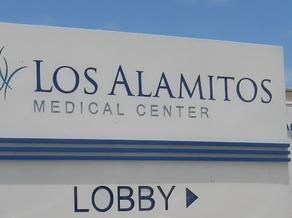By Dr. Steven Becker (Internal medicine specialist in Los Alamitos with Monarch HealthCare
As the holidays approach, and the season’s expectations and demands draw near, it is not uncommon for some, especially older adults, to catch a case of the “holiday blues.” But it’s important to know when it’s more than just the “blues” and how other conditions, like diabetes, can be linked with depression. November is National Diabetes Awareness month, an ideal opportunity for seniors and others to learn how diabetes and depression can go hand in hand.
Diabetes remains prevalent among seniors. According to the 2017 National Diabetes Statistics Report, the percentage of adults with diabetes increased with age, reaching a high of 25.2% among those aged 65 years or older. At the same time, seniors are also more susceptible to depression because of increased loneliness associated with the loss of loved ones. Unfortunately, when depression co-occurs with another illness, such as diabetes, it can often go unnoticed.
According to the Center for Disease Control, recent research has shown that depression is twice as common among people who have diabetes than it is among people who do not have the disease. In addition, the chances of becoming depressed increases as diabetes complications worsen. Research also shows that depressed adults have a 37 percent increased risk of developing type 2 diabetes.
Depression symptoms often overlap with signs of poor diabetes control, which can make diagnosing depression in people with diabetes a challenge. These depression symptoms may affect how diabetes patients manage their condition. For example:
Low Motivation. Depressed people may lack the motivation to properly manage their diabetes.
Fatigue. Depression often leads to fatigue, which leads to lack of exercise – an important part of diabetes management.
Feelings of hopelessness and helplessness can lead to “giving up” on necessary diabetes treatment.
Changes in appetite. You eat more or less than you used to, which can lead to unstable glucose levels that can be either too high or too low.
Poor Stress Management. Ongoing anxiety or stress can increase cortisol levels, which complicate management of glucose levels.
Poor diabetes control can also prompt symptoms similar to those of depression. For example, if your blood sugar is too high or too low, you may experience increased feelings of anxiety, restlessness or low energy.
The holidays can be a stressful time. When that stress isn’t managed properly, it can have damaging consequences on our health. Talk to your doctor to find out more about the links between diabetes and depression, and take the necessary steps toward healthy living.
###

